People Involved in the Soviet War in Afghanistan: Osama Bin Laden, Jimmy Carter, Ronald Reagan, Mikhail Gorbachev, Ahmad Shah Massoud
Please note that the content of this book primarily consists of articles available from Wikipedia or other free sources online. Pages: 137. Chapters: Osama bin Laden, Jimmy Carter, Ronald Reagan, Mikhail Gorbachev, Ahmad Shah Massoud, Leonid Brezhnev, Yuri Andropov, Mohammed Omar, Konstantin Chernenko, Abdul Rashid Dostum, Mohammad Najibullah, Babrak Karmal, Burhanuddin Rabbani, Hafizullah Amin, Zbigniew Brzezinski, Ismail Khan, Gulbuddin Hekmatyar, Muhammad Zia-ul-Haq, Rahimuddin Khan, Charlie Wilson, Michael Pillsbury, Abdul Ghani Baradar, Mohammed Fahim, Imtiaz Ahmed, Tariq Mehmood, Daniel Patrick Boyd, Jalaluddin Haqqani, Abdul Haq, Mullah Naqib, Abbas Khattak, Abdullah Wardak, George Crile III, Colonel Imam, Sultan Ali Keshtmand, Lee Shapiro, Iftikhar Ahmed Sirohey, Gordon J. Humphrey, Mohammad Hasan Sharq, Jamil al-Rahman, Michael G. Vickers, Gust Avrakotos, Milton Bearden, Mohammad Nabi Azimi, Joanne Herring, Abdul Momim, Haji Mohammad Chamkani, Baba Jalandar Panjshiri, Issa Nuristani, Mohammad Nasim Akhundzada. Excerpt: Ronald Wilson Reagan (; February 6, 1911 - June 5, 2004) was the 40th President of the United States (1981-1989), the 33rd Governor of California (1967-1975), and prior to that, a radio, film and television actor. Reagan was born in Tampico in Whiteside County, Illinois, reared in Dixon in Lee County, Illinois, and educated at Eureka College in Eureka, Illinois, with a Bachelor of Arts degree in economics and sociology. Upon his graduation, Reagan first moved to Iowa to work as a radio broadcaster and then in 1937 to Los Angeles, California. He began a career as an actor, first in films and later television, appearing in over 50 movie productions and earning enough success to become a famous, publicly recognized figure. Some of his most notable roles are in Knute Rockne, All American and Kings Row. Reagan served as president of the Screen Actors Guild, and later spokesman for General Electric; his start in politics occurred during his wor...
- ISBN 13 : 9781157720416
- ISBN 10 : 1157720412
- Judul : People Involved in the Soviet War in Afghanistan: Osama Bin Laden, Jimmy Carter, Ronald Reagan, Mikhail Gorbachev, Ahmad Shah Massoud
- Pengarang : Source Wikipedia, LLC Books, LLC Books,
- Penerbit : Books LLC, Wiki Series
- Bahasa : en
- Tahun : 2010
- Halaman : 370
- Halaman : 370
- Google Book : http://books.google.co.id/books?id=zHgzSgAACAAJ&dq=intitle:osama+bin+laden&hl=&source=gbs_api
-
Ketersediaan :
Please note that the content of this book primarily consists of articles available from Wikipedia or other free sources online.







